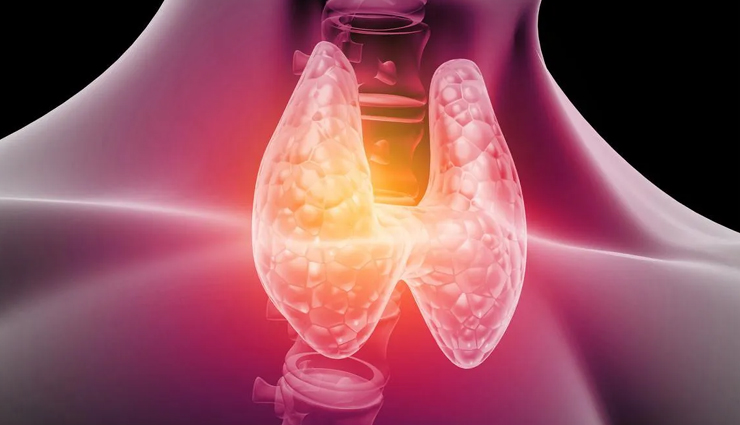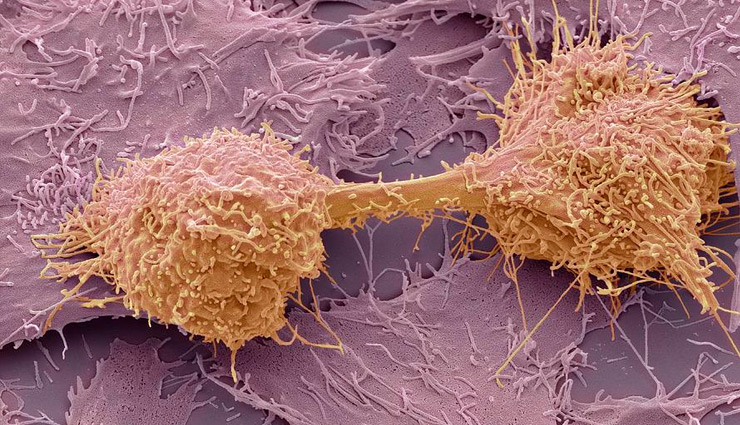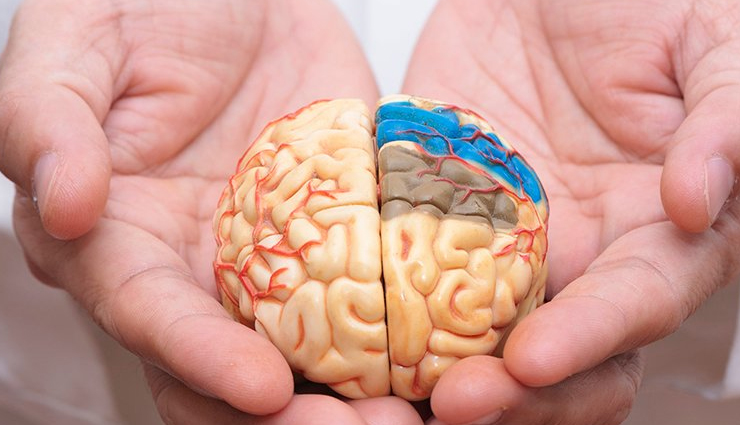- Home›
- Healthy Living›
- 7 Adverse Effects Of Soybeans Or Soy Protein
7 Adverse Effects Of Soybeans Or Soy Protein
By: Priyanka Maheshwari Sat, 12 Aug 2023 4:48:44

Soybeans are renowned for their nutrient richness and associated benefits, yet concerns about potential adverse effects of soy proteins are gaining attention.
These widely consumed legumes often find their way into an array of processed foods, with their protein sourced from their outer husks. Additionally, soybeans offer a spectrum of vitamins and minerals like calcium, zinc, iron, and amino acids.
Nevertheless, excessive soybean consumption can result in thyroid function disruptions due to protein-related issues, hormonal imbalances impacting testosterone levels, allergic reactions, and an elevated potential for cancer cell proliferation.
Upon soybean (or soy protein) ingestion, soy isoflavones, commonly termed phytoestrogens, attach to estrogen receptors in the body. These phytoestrogens compete with the body's inherent estrogen for receptor binding, resulting in a form of estrogenic or anti-estrogenic activity with relatively modest strength. This implies that soy isoflavones might reduce the effectiveness of natural estrogen in the body.
These interactions possess the potential to unsettle hormonal equilibrium, potentially causing gender-specific changes in females. Correspondingly, they might induce anti-androgenic effects in males, which could lead to phenomena such as gynecomastia (enlargement of male breasts) and decreased sperm concentration when following a high-soy diet.
Sustained excessive intake of isoflavones over an extended period may incite stimulating effects on the endometrium (lining of the uterus) and breast tissue in females. Hence, individuals with a history of breast cancer are often recommended to avoid soy protein.
Phytoestrogens possess the capability to influence various physiological and pathological processes in the body. Elevated doses of isolated soy components might yield detrimental consequences on reproduction, skin health, bone remodeling, cardiovascular function, nervous system performance, immune responses, and metabolism.

# May Interfere With Thyroid Regulation
Consuming soy-based foods might amplify the vulnerability to hypothyroidism among individuals with compromised thyroid function. Such individuals could potentially develop conditions like goiter and autoimmune thyroid ailments. This susceptibility becomes more pronounced in instances where the person's intake of iodine is insufficient.
Soy isoflavones have been identified as agents that can impede the functionality of an enzyme known as thyroid peroxidase. This particular enzyme is indispensable for the synthesis of thyroid hormones. This is the underlying reason why a high consumption of soy protein could lead to an increased risk of hypothyroidism.
Furthermore, soy-derived products can hinder the proper absorption of levothyroxine (also referred to as L-thyroxine), a medication used to address deficiencies in thyroid hormones. Given that soy proteins have the potential to alter the availability of these medications, individuals with thyroid imbalances may be cautioned against the consumption of soy protein.
Nevertheless, it's important to note that a mere substantial intake of soy isoflavones alone does not seem to heighten the likelihood of hypothyroidism, unless coupled with inadequate dietary intake of iodine. Consequently, the impact of soy protein on thyroid function remains a topic of debate, necessitating further investigation in this domain.

# May Cause Testosterone Imbalance
A study encompassing 12 male participants who consumed 56 g of soy protein isolate daily over a span of four weeks yielded noteworthy findings. This investigation revealed a notable reduction of 19% in their serum testosterone levels. Despite variations in the collected data, a discernible trend emerged wherein soy protein demonstrated the capacity to lower serum testosterone levels among healthy men.
Soy protein has been implicated in potentially adverse impacts on male reproductive function; however, a dearth of specific studies exists on this matter. Interestingly, certain animal studies have asserted that soy isoflavones do not exert feminizing effects on male subjects.
The majority of insights available stem from laboratory experiments and animal trials. As a result, the correlation between soy isoflavones and testosterone remains indeterminate, lacking a definitive conclusion.

# May Elicit Hypersensitivity (Allergy)
Intolerance towards soy products can prompt allergies or hypersensitivity in both children and adults. Frequently, the onset of soy allergy occurs during infancy, often originating from reactions to soy-based infant formulas. However, it's worth noting that a majority of children eventually outgrow this soy allergy.
Generally, soy allergy tends to be discomforting rather than severe. Allergic responses to soy are rarely daunting or life-threatening, except in the case of individuals with asthma. Indicators of soy allergy might encompass sensations of tingling in the mouth, eczema or itchy skin, the appearance of rashes, wheezing, stomach discomfort, diarrhea, headaches, vomiting, and skin redness (flushing).
Should you encounter any of these symptoms, it's plausible that a soy allergy is at play. Undergoing testing is recommended to confirm the presence of the allergy. If the results turn out to be positive, it might be advisable to refrain from consuming soy products or isoflavones.

# May Increase The Risk Of Cancer Proliferation
Soy isoflavones, including compounds like genistein, have the potential to induce the growth of cancer cells within your body. This phenomenon is particularly relevant in instances of estrogen-dependent breast cancer, given that soy isoflavones often exhibit effects similar to those of estrogen.
Animal studies suggest that genistein could disrupt the normal progression of the cell cycle and initiate the formation of tumors. This action is instigated by its interaction with estrogen receptors.
Conversely, findings from human studies present a contrasting perspective, showing an inverse correlation between cancer and isoflavone consumption. In fact, there is evidence that incorporating soy into one's diet could lead to a reduction in the occurrence and fatality rates associated with breast cancer. This might be attributed to the anti-estrogenic influence exerted by phytoestrogens.
It's important to note that the quantity and origin of soy isoflavones also play a crucial role in determining the risk of breast cancer.

# May Trigger Alzheimer’s Dementia
In the past, the utilization of soy foods in culinary practices primarily involved a process of fermentation. This traditional approach involved a two-step method, which effectively eliminated a substantial portion of the anti-nutrients present in soy, including isoflavones like genistein and daidzein, as well as DNA-modifying enzymes such as topoisomerases.
However, when you consume unfermented and either cooked or raw soy foods, the presence of these anti-nutrients has the potential to influence crucial systems within your body, including your brain.
The presence of these anti-nutrients in soy has the capacity to yield unfavorable impacts on numerous individuals. Notably, soy isoflavones may contribute to an elevated susceptibility to Alzheimer's dementia.
If you are grappling with dementia or possess a family history of this condition, it might be prudent to consider moderating your intake of soy products.

# May Cause Infant Health Issues
Infant food formulas contain notable quantities of soy protein and isoflavones. Infants who are nourished with these formulas are exposed to a range of 5.7 to 11.9 mg of isoflavones per kilogram of their body weight during their initial four months of life.
Consequently, these infants encounter isoflavone levels that are 6 to 11 times higher than what adults typically experience. This elevated exposure could potentially disrupt the child's reproductive health and endocrine functionality. The primary isoflavones, namely daidzein and genistein, exhibit a preference for binding to estrogen receptors within the body.
It's worth noting, however, that these conclusions are drawn primarily from animal studies. Human investigations might present a different perspective. Furthermore, existing soy-based formulas for infants have not displayed apparent toxic effects in cases of healthy infants. As such, it's recommended to consult your pediatrician before introducing soy-based formulas to your child.
# Unsure Osteoprotective Effects
Soy protein has demonstrated a capacity to uphold bone mineral density, particularly among postmenopausal women. In the case of perimenopausal women, soy isoflavones have exhibited a preventive effect against bone loss from the lumbar spine. These isoflavones, however, do not appear to significantly impact the processes of bone formation or resorption, showing neither positive nor negative effects.
It's worth noting that there could be instances where mineral balance is affected by soy consumption. Soybeans consist of approximately 1-3% phytic acid, also known as phytate, by weight. Phytic acid is classified as an anti-nutrient due to its ability to bind to minerals such as zinc, iron, and calcium. In conjunction with soy isoflavones, phytic acid could potentially diminish the bioavailability of these minerals.
Nonetheless, a substantial body of literature highlights the potential of soy protein to foster bone health. Further research is necessary to ascertain the precise impact of soy protein or soy-based foods on bone density and related conditions.
The majority of studies concerning soybeans and soy protein still lack definitive conclusions. While some investigations suggest their positive effects on health, others point to potential harm. However, this does not necessitate complete avoidance of soy. Certain specific soy products might warrant consideration for avoidance.





